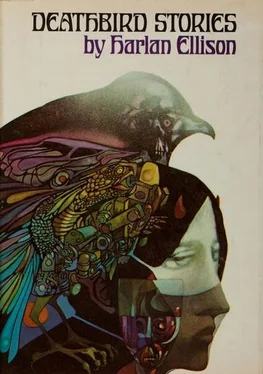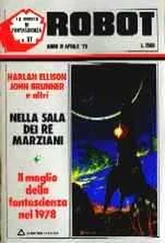4. Why is the word LORD always in capitals and the name God always capitalized? Shouldn’t the serpent’s name be capitalized, as well? If no, why?
5. If God created everything (see Genesis, Chap. I), why did he create problems for himself by creating a serpent who would lead his creations astray? Why did God create a tree he did not want Adam and Eve to know about, and then go out of his way to warn them against it?
6. Compare and contrast Michelangelo’s Sistine Chapel ceiling panel of the Expulsion from Paradise with Bosch’s Garden of Earthly Delights.
7. Was Adam being a gentleman when he placed blame on Eve? Who was Quisling? Discuss “narking” as a character flaw.
8. God grew angry when he found out he had been defied. If God is omnipotent and omniscient, didn’t he know? Why couldn’t he find Adam and Eve when they hid?
9. If God had not wanted Adam and Eve to taste the fruit of the forbidden tree, why didn’t he warn the serpent? Could God have prevented the serpent from tempting Adam and Eve? If yes, why didn’t he? If no, discuss the possibility the serpent was as powerful as God.
10. Using examples from two different media journals, demonstrate the concept of “slanted news. “
5
The poison winds howled and tore at the powder covering the land. Nothing lived there. The winds, green and deadly, dived out of the sky and raked the carcass of the Earth, seeking, seeking: anything moving, anything still living. But there was nothing. Powder. Talc. Pumice.
And the onyx spire of the mountain toward which Nathan Stack and the shadow thing had moved, all that first day. When night fell they dug a pit in the tundra and the shadow thing coated it with a substance thick as glue that had been in Stack’s neck-pouch. Stack had slept the night fitfully, clutching the warming-stone to his chest and breathing through a filter tube from the pouch.
Once he had awakened, at the sound of great batlike creatures flying overhead; he had seen them swooping low, coming in flat trajectories across the wasteland toward his pit in the earth. But they seemed unaware that he—and the shadow thing—lay in the hole. They excreted thin, phosphorescent strings that fell glowing through the night and were lost on the plains; then the creatures swooped upward and were whirled away on the winds. Stack resumed sleeping with difficulty.
In the morning, frosted with an icy light that gave everything a blue tinge, the shadow thing scrabbled its way out of the choking powder and crawled along the ground, then lay flat, fingers clawing for purchase in the whiskaway surface. Behind it, from the powder, Stack bore toward the surface, reached up a hand and trembled for help.
The shadow creature slid across the ground, fighting the winds that had grown stronger in the night, back to the soft place that had been their pit, to the hand thrust up through the powder. It grasped the hand, and Stack’s fingers tightened convulsively. Then the crawling shadow exerted pressure and pulled the man from the treacherous pumice.
Together they lay against the earth, fighting to see, fighting to draw breath without filling their lungs with suffocating death.
“Why is it like this…what happened?” Stack screamed against the wind. The shadow creature did not answer, but it looked at Stack for a long moment and then, with very careful movements, raised its hand, held it up before Stack’s eyes and slowly, making claws of the fingers, closed the four fingers into a cage, into a fist, into a painfully tight ball that said more eloquently than words: destruction.
Then they began to crawl toward the mountain.
6
The onyx spire of the mountain rose out of hell and struggled toward the shredded sky. It was monstrous arrogance. Nothing should have tried that climb out of desolation. But the black mountain had tried, and succeeded.
It was like an old man. Seamed, ancient, dirt caked in striated lines, autumnal, lonely; black and desolate, piled strength upon strength. It would not give in to gravity and pressure and death. It struggled for the sky. Ferociously alone, it was the only feature that broke the desolate line of the horizon.
In another twenty-five million years the mountain might be worn as smooth and featureless as a tiny onyx offering to the deity night. But though the powder plains swirled and the poison winds drove the pumice against the flanks of the pinnacle, thus far their scouring had only served to soften the edges of the mountain’s profile, as though divine intervention had protected the spire.
Lights moved near the summit.
7
Stack learned the nature of the phosphorescent strings excreted onto the plain the night before by the batlike creatures. They were spores that became, in the wan light of day, strange bleeder plants.
All around them as they crawled through the dawn, the little live things sensed their warmth and began thrusting shoots up through the talc. As the fading red ember of the dying sun climbed painfully into the sky, the bleeding plants were already reaching maturity.
Stack cried out as one of the vine tentacles fastened around his ankle, holding him. A second looped itself around his neck.
Thin films of berry-black blood coated the vines, leaving rings on Stack’s flesh. The rings burned terribly.
The shadow creature slid on its belly and pulled itself back to the man. Its triangular head came close to Stack’s neck, and it bit into the vine. Thick black blood spurted as the vine parted, and the shadow creature rasped its razor-edged teeth back and forth till Stack was able to breathe again. With a violent movement Stack folded himself down and around, pulling the short knife from the neck-pouch. He sawed through the vine tightening inexorably around his ankle. It screamed as it was severed, in the same voice Stack had heard from the skies the night before. The severed vine writhed away, withdrawing into the talc.
Stack and the shadow thing crawled forward once again, low, flat, holding onto the dying earth: toward the mountain.
High in the bloody sky, the Deathbird circled.
8
On their own world, they had lived in luminous, oily-walled caverns for millions of years, evolving and spreading their race through the universe. When they had had enough of empire building, they turned inward, and much of their time was spent in the intricate construction of songs of wisdom, and the designing of fine worlds for many races.
There were other races that designed, however. And when there was a conflict over jurisdiction, an arbitration was called, adjudicated by a race whose raison d’être was impartiality and cleverness in unraveling knotted threads of claim and counterclaim. Their racial honor, in fact, depended on the flawless application of these qualities. Through the centuries they had refined their talents in more and more sophisticated arenas of arbitration until the time came when they were the final authority. The litigants were compelled to abide by the judgments, not merely because the decisions were always wise and creatively fair, but because the judges’ race would, if its decisions were questioned as suspect, destroy itself. In the holiest place on their world they had erected a religious machine. It could be activated to emit a tone that would shatter their crystal carapaces. They were a race of exquisite cricket-like creatures, no larger than the thumb of a man. They were treasured throughout the civilized worlds, and their loss would have been catastrophic. Their honor and their value was never questioned. All races abided by their decisions.
So Dira’s people gave over jurisdiction to that certain world, and went away, leaving Dira with only the Deathbird, a special caretakership the adjudicators had creatively woven into their judgment.
Читать дальше












